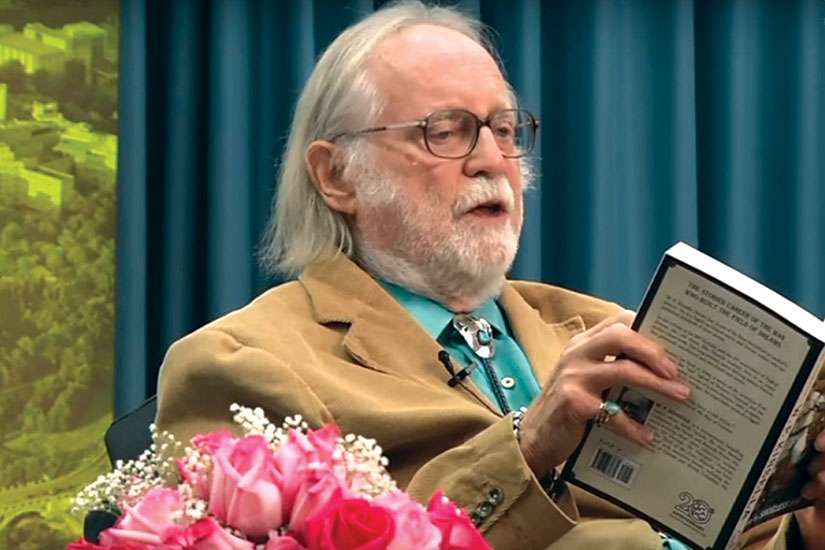“Mr. Kinsella died Friday afternoon in Hope, B.C. It was an assisted death under the provisions of Bill C-14. He was 81.”
Assisted death? Yes, he died, but it was a physician-assisted suicide. Assisted death comes from palliative-care specialists who for years have tenderly, and often lovingly, helped people confront the inevitable — as opposed to persons causing immediate death. The nurses who helped our family and my wife’s father in his final hours after a brain aneurysm come to mind. So do others who were there last year when my friend Jim Whyte succumbed to cancer at too young an age.
I recognize that polls show a majority of Canadians are in favour of physician-assisted suicide, but let’s call a spade a spade, regardless which side of the argument one falls on. It’s as if supporters of assisted suicide are sticking a different kind of pole in the ground and raising the flag in victory by calling it something it isn’t.
And that’s the irony. Writers — especially writers of the stature of Kinsella — love words and their proper meaning. It’s why it sometimes takes writers hours to come up with the correct words and structure for a sentence or a paragraph. It’s why writers bleed ink. Words matter.
Euphemisms are for government leaders and bureaucrats selling their programs du jour. We learned all about this from George Orwell in Nineteen Eighty-Four. I’m betting Kinsella, the author of Shoeless Joe, the novel that inspired the Hollywood blockbuster Field of Dreams, would see the irony in calling his end an assisted death instead of an assisted suicide.
The Canadian government is using euphemism in Bill C-14, “an Act to amend the Criminal Code and to make related amendments to other Acts (medical assistance in dying).” The word suicide is mentioned sparingly in Bill C-14, but when it is, words like this immediately follow: “…in order to permit medical practitioners and nurse practitioners to provide medical assistance in dying.”
It’s almost as if the federal government is doing what it so often accused the Quebec government of doing in its two sovereignty referendums: using ambiguous words instead of being clear and asking the people if they wished to leave or stay a part of Canada.
Toronto’s Cardinal Thomas Collins hit the nail on the head on June 20 of this year after the government passed the assisted-suicide bill: “We need to speak forthrightly. When people feel compelled to use language in a way that does not reveal what is actually happening, but instead conceals it, it is a sign that something is radically wrong (and they know it). The now officially accepted terminology, such as ‘Medical Assistance in Dying’ does not describe medical assistance in dying; it describes killing. Let us say what we mean, and mean what we say.”
The cardinal and others are certainly not suggesting people should suffer grievously. Indeed, as far back as 1980, Pope John Paul II issued a Declaration on Euthanasia in which he opposed mercy killing, but supported the greater use of drugs to ease pain without accelerating death; and the right for people to refuse extraordinary means for sustaining life. Again, there is a difference between a DNR order (Do Not Resuscitate) for medical staff and a physician injecting drugs to bring on immediate death.
“To those who are grievously suffering in body or spirit and who desperately seek relief: we need to be sure that you receive it, through whatever medical means are available, and through the loving care that you deserve,” Cardinal Collins wrote in June. “The question is not whether you need relief; it is how to find it. Suicide is not the answer to the very real question you face.”
There are nuances in the debate. For example, painkillers that relieve pain can also bring on death depending on the amount administered or the length of time over which they are given. There are other nuances, but the use of language shouldn’t be one of them.
State-sanctioned suicides are a reality in Canada and whether one opposes the notion or supports the new law, let’s call it what it is and not couch it with euphemisms. The term “dying with dignity” has also been usurped by those supporting suicide and that’s a shame, too. I’ve been present for several deaths where doctors did not inject drugs to induce immediate death and those people died with dignity. Words matter.
(Brehl is a writer in Port Credit, Ont., and can be reached at bob@abc2.ca or @bbrehl on Twitter.)


